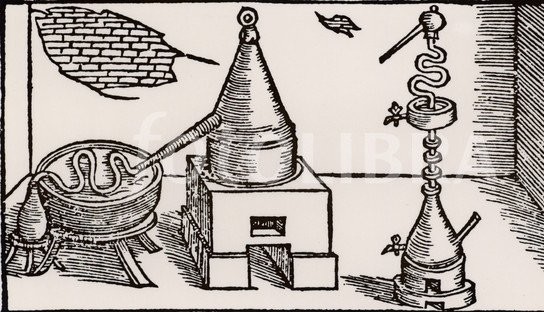
Aqua Vitae – Water of Life
Welcome to Rome Across Europe! If you’re like us, then you love yourself some food and drink.
If we can toss in something fun or interesting to make your time eating or drinking better, then we’ve met our goal. Each day here at RAE do our best to meet that goal.
Recently we’ve had some articles like History of Wine: Ancient Rome; Ancient Roman Cuisine; Beer…Roman Style; and Wine – The Water of Rome.
Today we expand that journey as we take a look at Aqua Vitae!
Aqua Vitae (or aqua vita) literally translate from Latin as water of life. This is an archaic name for a concentrated aqueous solution of ethanol.
Aqua Vitae encompasses various types of alcoholic spirits, though it has other distinct meanings as well. The term was in wide use during the Middle Ages and the Renaissance, although its origin undoubtedly came about much earlier.
The term was commonly used in ancient history and spread throughout the entirety of the Imperium Rōmānum. Aqua Vitae entered into a number of different languages and formed the basis for the names of numerous alcoholic distillations throughout all lands and people conquered by ancient Rome.
The phrase was used colloquially to refer to baptismal waters. Saint Patrick and his fellow monks were said to have used the term to refer to both alcohol and the waters of baptism.
Generally, the term is a generic name for all types of distillates, and eventually came to refer specifically to distillates of alcoholic beverages.
Aqua Vitae was typically prepared by distilling wine. It was sometimes called “spirits of wine” in English texts, a name for brandy that had been repeatedly distilled.
Aqua Vitae was often an etymological source of terms applied to important locally produced distilled spirits. Examples include whisky (from the Gaelic uisce beatha), eau de vie in France, acquavite in Italy, and akvavit in Scandinavia, okowita in Poland, okovyta in Ukraine and akavita in Belarus.
If Aqua Vitae is requested in most English-speaking countries, such as the United Kingdom, then it is typically used in an idiomatic manner and often intended to specifically refer to French brandy.
Throughout various regions of the Western world, Aqua Vitae has commonly become used in reference to a particular alcoholic beverage important to that region.
Some interesting synonyms for Aqua Vitae, aside from alcohol, are as follows: milk, oil, syrup, sauce, essence, sap or nectar.
Material chemist and history of chemistry researcher at North Dakota State University, Seth C. Rasmussen, has even written a book about this term. His book is titled The Quest for Aqua Vitae: The History and Chemistry of Alcohol from Antiquity to the Middle Ages.
Rasmussen explored a wide variety of publications on the origin of alcohol production. In his book, he considers evidence from archaeology, botany, genetics and chemistry, which enables him to make informed judgments on the varieties of cultivated yeasts, and on various aspects of archaeological research.
Aqua Vitae is something that isn’t simply for the past, it lives in the present. We hope you enjoyed discovering the origins of this ancient term, and look forward to hearing it spread today.
Till next time, Don’t Stop Rome-ing!
- See more at: http://www.romeacrosseurope.com